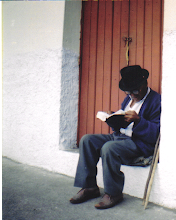Reading today, I came across the following quotes by Elder Orson Pratt relating to eternal marriage:
The Lord ordained marriage between male and female as a law through which spirits should come here and take tabernacles, and enter into the second state of existence. The Lord Himself solemnized the first marriage pertaining to this globe, and pertaining to flesh and bones here upon this earth. I do not say pertaining to mortality; for when the first marriage was celebrated, no mortality was there. The first marriage that we have any account of, was between two immortal beings--old father Adam and old mother Eve; they were immortal beings; death had no dominion, no power over them; they were capable of enduring for ever and ever, in their organization. Had they fulfilled the law, and kept within certain conditions and bounds, their tabernacles would never have been seized by death; death entered entirely by sin, and sin alone. This marriage was celebrated between two immortal beings. For how long? Until death? No. That was entirely out of the question; there could have been no such thing in the ceremony.What would you consider, my hearers, if a marriage was to be celebrated between two beings not subject to death? Would you consider them joined together for a certain number of years, and that then all their covenants were to cease for ever, and the marriage contract be dissolved? Would it look reasonable and consistent? No. Every heart would say that the work of God is perfect in and of itself, and inasmuch as sin had not brought imperfection upon the globe, what God joined together could not be dissolved, and destroyed, and torn asunder by any power beneath the celestial world, consequently it was eternal; the ordinance of union was eternal; the sealing of the great Jehovah upon Adam and Eve was eternal in its nature, and was never instituted for the purpose of being overthrown and brought to an end. It is known that the "Mormons" are a peculiar people about marriage; we believe in marrying, not only for time, but for all eternity. This is a curious idea, says one, to be married for all eternity. It is not curious at all; for when we come to examine the Scriptures, we find that the very first example set for the whole human family, as a pattern instituted for us to follow, was not instituted until death, for death had no dominion at that time; but it was an eternal blessing pronounced upon our first parents. I have not time to explain further the marriage of Adam and Eve, but will pass on to their posterity.It is true, that they became fallen, but there is a redemption. But some may consider that the redemption only redeemed us in part, that is, merely from some of the effects of the fall. But this is not the case; every man and woman must see at once that a redemption must include a complete restoration of all privileges lost by the fall.
Suppose, then, that the fall was of such a nature as to dissolve the marriage covenant, by death--which is not necessary to admit, for the covenant was sealed previous to the fall, and we have no account that it was dissolved--but suppose this was the case, would not the redemption be equally as broad as the fall, to restore the posterity of Adam back to that which they lost? And if Adam and Eve were married for all eternity, the ceremony was an everlasting ordinance, that they twain should be one flesh for ever. If you and I should ever be accounted worthy to be restored back from our fallen and degraded condition to the privileges enjoyed before the fall, should we not have an everlasting marriage seal, as it was with our first progenitors? If we had no other reasons in all the Bible, this would be sufficient to settle the case at once in the mind of every reflecting man and woman, that inasmuch as the fall of man has taken away any privileges in regard to the union of male and female, these privileges must be restored in the redemption of man, or else it is not complete.
Orson Pratt, "Celestial Marriage," Journal of Discourses, 1:58 (1852).

No comments:
Post a Comment